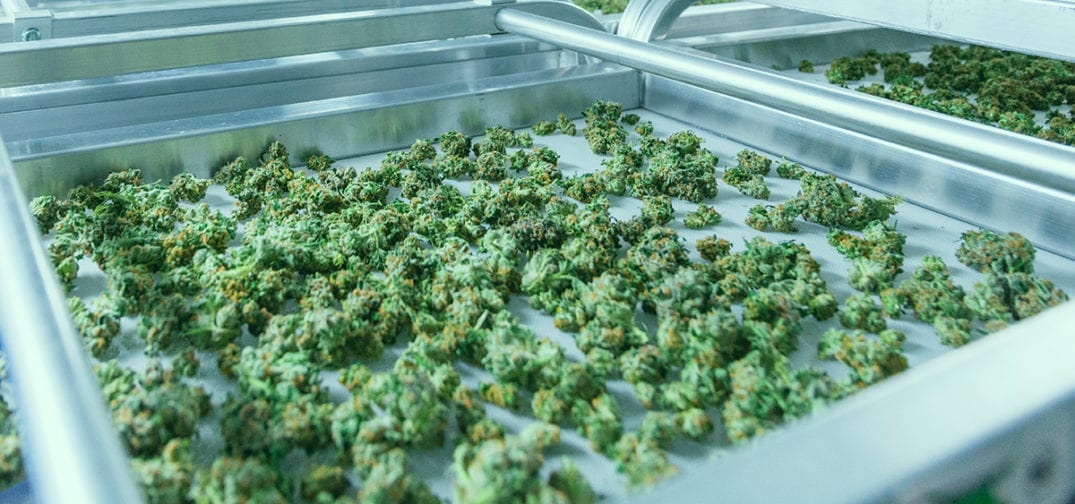In 2019, Washington state established the Washington Social Equity In Cannabis Task Force via HB2870. The task force marks the beginning of an eight-year evaluation of the Washington cannabis industry to ensure the industry serves the communities most heavily targeted by the war on drugs.
The main purpose of the task force is to develop a social equity program. They will help to accomplish this through reporting to the governor and legislature on factors that the state’s Liquor Control Board (LCB) should consider when distributing licenses and whether there should be additional licenses issued.
With the first meeting held on October 26, 2020, there is still much work left but their mission is beginning to take direction. In a December 14 meeting, the task force voted to center on anti-Black racism as they formulate their recommendations.
When Commissioner Paula Sardinas of the Washington State Commission on African American Affairs accepted the Co-Chair position, she was prepared to dismantle an industry that repeatedly ignored Black Americans who have paid the price of the war on drugs. The task force’s vote to center anti-Black racism in their recommendations acknowledges 400 years of oppression and takes a step towards dismantling the structural racism built into the framework of Washington cannabis.
Sardinas has a unique role as both a Commissioner and a lobbyist. She works hard to delineate the roles. As a Black woman who has been personally impacted by the war on drugs, she does not represent any labor party or other entities. When she began lobbying pro-bono for the Black community in cannabis, she was the first Black lobbyist to enter the space. Her experience in that work has called her to demand transparency and accountability from the Washington LCB and policymakers. The first step to accomplishing this would be requiring policymakers to expose who is paying for their campaigns, which Sardinas says is a crucial step to dismantling the racist structures that permeate the space.
Another facet of the social equity process in Washington will include data-driven policy based on ACLU reports about how the war on drugs caused direct and generational harm to the Black community. These findings coupled with census data showing where BIPOC people reside and looking at crime statistics from drug use, arrests, and convictions in those communities alongside systemic poverty factors will provide clarity as to where the work needs to be done. This investigation of the past must be met with a forward-looking policy much in the same way that we approach the tech and pharmaceutical industries.
“The Task Force should be recommending 2021 legislation that is both urgent and important. HB2870 has some serious inadequacies that cannot wait. The Black and #BIPOC community has been waiting for years for equity. A 2021 clean-up bill can address those inequities. Any politician not willing to draft legislation—is not advocating for the people, they are working for their own interest.” — Commissioner Paula Sardinas, in a statement to Ganjapreneur
Taking a look at the industry now and then forecasting where it will be in five years will help policymakers identify future opportunities, and these opportunities must be given to Black and brown licensees to honor the promises of social equity. Because right now, the 35 of 600 total licenses that are going to social equity applicants simply isn’t enough.
Commissioner Sardinas is also focused on holding space for the queer community and other marginalized groups alongside the Black community as they establish social equity in Washington. Generally, the people who implement social equity policies simply aren’t dealing with the experiences that affect BIPOC and queer people daily. For example, showing up to an open commercial rental space only to be turned down if the realtor identifies you as Black or queer is an experience that some have the privilege of never understanding. The commissioner is asking people who have gone through bad licensing incidents or who simply want to share an experience working with the LCB to virtually attend the next Washington Social Equity Task Force meeting.
“If you are a black, trans, straight, or any with an interest in cannabis please show up to the next meeting and let us know what you’re thinking,” Commissioner Sardinas told Ganjapreneur. “We have no business making policy for this community without hearing from our community.”
Editor’s note (1/21/2021): The next Social Equity Task Force meeting has been scheduled for January 25, 2021. The meeting did not yet have a set date when this article was published.
Get daily cannabis business news updates. Subscribe
End
